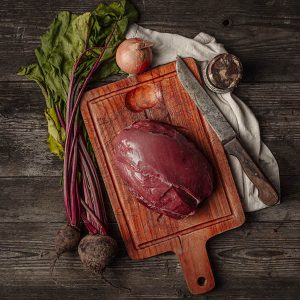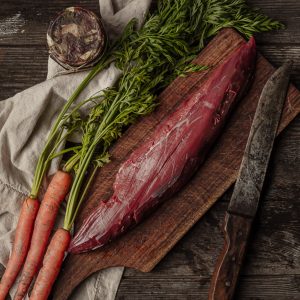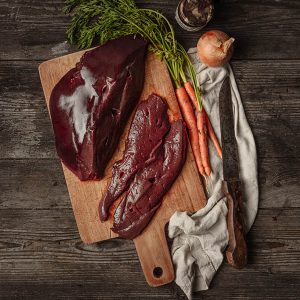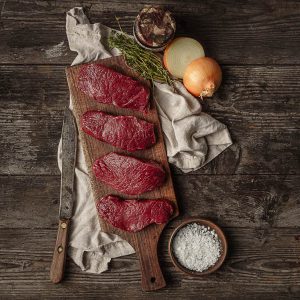The Future of Organic – from Revolution to Evolution
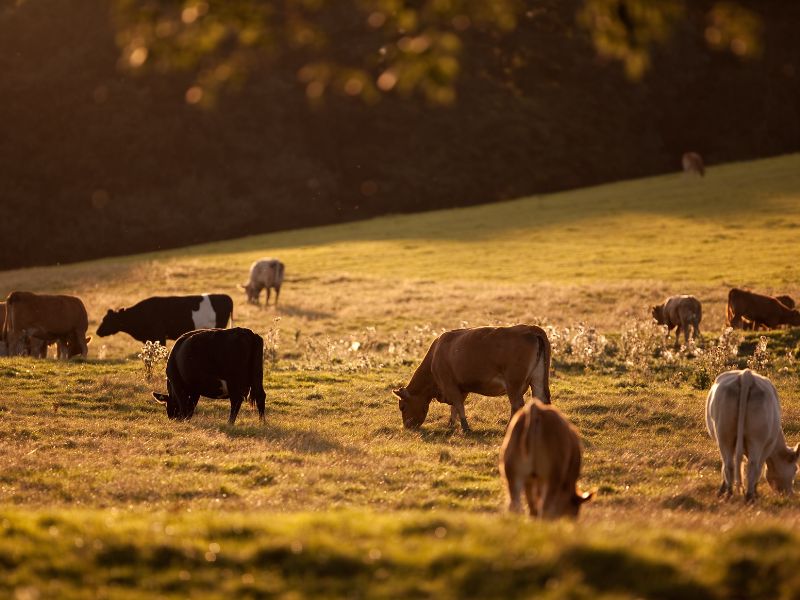
By Tim Martin, Farm Wilder Founder
Every year Organic September champions the benefits of this way of farming. There is much to celebrate, but it’s also a good time to ask why organic hasn’t taken off in the UK as much as in some other countries, what we could do to change that, and to reflect on how it could go even further.
The organic food movement has been leading a glorious rebellion against chemically controlled intensive farming for over 70 years, with the Soil Association, which was founded in 1946, at its heart. For most of my life buying organic has been the only way that I as a consumer could choose to support a kinder, more sustainable and wildlife friendly way of producing food. Every time I see organic, in a supermarket or on a menu, it gives me hope that humanity can find a way to live on Planet Earth without trashing the climate and wiping out nature. But when I see the stats about organic food consumption in the UK my heart sinks - a pitiful 1.8% of the food and drink we consume is organic. Across the channel France manages 4.7%, and Denmark tops the league with 13%. Why do we lag so far behind? What’s going on in a nation that I believe cares deeply about our wildlife and countryside, and is increasingly concerned about averting climate change?
Bargain Culture
Denmark’s leadership on organic food production and consumption is no accident, it’s the result of their government’s long history of green policies, and a determination to produce food with as little pollution and as small a carbon footprint as possible. In the UK, in contrast, the government has generally been content to leave the market and consumer demand to dictate the level of organic farming. Unfortunately, the vast power of the supermarkets, and their fierce competition for shoppers, has led us into a cheap food culture. We are bombarded by adverts shouting about low prices, so little wonder that this is the primary lens through which we see food shopping. This is why price so often trumps quality and sustainability. Low prices are a great help if you’re on a low income, but even those who could afford to pay more for sustainably produced food are often seduced by the allure of the bargain, and end up unwittingly supporting farming methods that do untold damage in the UK and around the world.
The Connection to Nature
This fixation on the cost of food has taken root because we have become so far removed from the reality of producing it. Few of us have much idea how crops are grown or animals are raised, slaughtered and butchered, or how little farmers make from working incredibly hard. In the absence of this knowledge, all that’s left to inform our decision making is marketing, packaging and price. It suits the big retailers to present such a simplistic and rosy view of farming, complete with gorgeous pastoral imagery that is a far cry from the polluting reality of much of our modern intensive farming. They want us to swallow the myth that all is well on the farm. We need to break through this wall of ignorance - only if people understand the difference that organic and other sustainable farming methods make, to the lives of animals and farmers and to the wider countryside, will more of us be prepared to pay a little more for better food. This is why Farm Wilder places so much emphasis on telling the story of our farms and their wildlife, on our online shop, on our packaging and on social media. Only by connecting people back to the land can we achieve the change we need in farming.
The Problem with Price
Organic food does cost more and that’s no doubt the greatest barrier for many shoppers, especially at times like this, when so many peoples’ budgets are stretched to breaking point. The higher cost is for many reasons, most importantly because yields are lower than for conventional produce, and without the help of chemicals it’s more labour intensive to produce. But organic food isn’t really more expensive once you factor in the benefits - it’s just that the price we pay at the checkout for conventional food doesn’t include the bill for the damage it causes to rivers, climate, soils and biodiversity. In effect, tax payers are subsidising unsustainable farming because we, and future generations, are paying for the damage. Patrick Holden, at the Sustainable Food Trust, has long argued that we need to create a level playing field, by applying the polluter pays principle, imposing more costs on intensive farming to reflect the damage it does. That would make most food more expensive, which would be political suicide for any government. But as Riverford’s founder Guy Watson points out, we accept astronomically high housing costs in this country, but don’t accept that food should be worth any more, even though in real terms it’s been getting steadily cheaper for many years. If we’re going to tackle climate change and restore biodiversity, at some point we need to readjust where we place value and pay the actual price of growing food sustainably.
Can we feed to world organically?
A few years ago, I interviewed leading arable farmer and NFU vice president Tom Bradshaw for the BBC series Harvest. He uses fertilizer and pesticide, when needed, to safeguard his yield of wheat, oats, barley and oil seed rape. Although he has a huge respect for organic farmers, he feels that we can’t feed the world organically, so intensive methods and chemicals are necessary. He’s right, but only if we maintain our current meat-heavy diet. Most of the meat we eat is incredibly land-hungry: 40% of the world’s farmland is dedicated to growing grains to feed livestock. If we stopped feeding grains to animals, and halved the amount of food we wasted, scientists believe that we actually could feed the world organically. This would mean eating a lot less meat, in particular chicken and pork which are most reliant on grain-based feeds. Instead we would need to switch to smaller amounts of grass-fed beef and lamb, which can be reared on land that isn’t good enough for grain or vegetable production, but is good at growing grasses and herbs. This is why the message that we need to eat less and better meat is so vital.
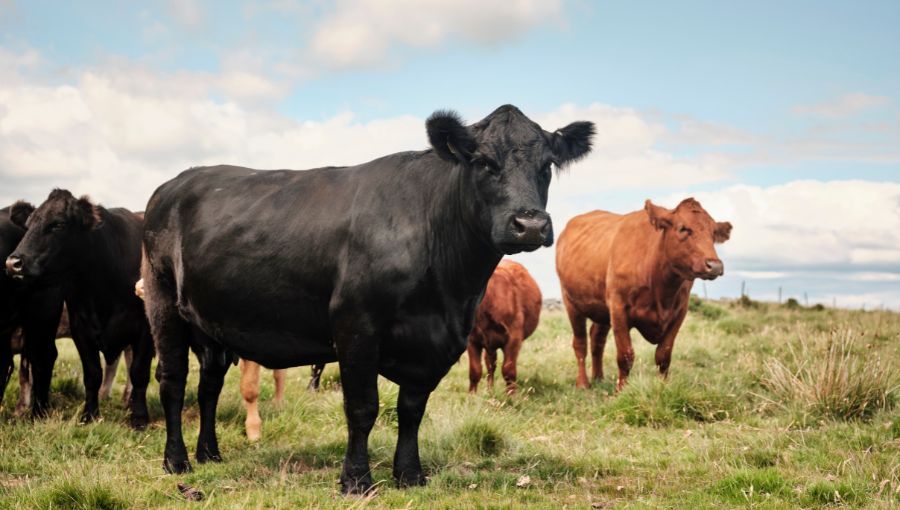
The Problem with Organic
Feeding the world organically is a great aspiration, but organic alone wouldn’t solve all our problems. Despite the low level of organic sales in the UK, it’s starting to dawn on many of us that organic alone isn’t enough. Organic is so much better than intensively produced food, but it can still be unsustainable. Organic chicken and pork require a vast amount of land to organically grow the grains that feed them. And organic certification still allows a cow’s diet to be up to 40% grains - this is why Farm Wilder believes that for beef and lamb 100% pasture-fed is better than organic (although several of our farmers manage to do both). Organic doesn’t guarantee thriving wildlife either - yes there will be more worms and other soil invertebrates, so more birds and other larger animals too. But an absence of chemicals isn’t enough - hedgehogs need healthy hedges, butterflies and bees need a diversity of wild flowers - and organic doesn’t require farmers to dedicate land to the variety of habitats wildlife needs. This omission was partly what motivated Luke and I to set up Farm Wilder: we wanted a food label for beef and lamb that aren’t grain-fed, and which guarantees habitat for rare birds and butterflies, such as cuckoos and marsh fritillaries.
Enter Regenerative Farming
Organic farming has another weakness - it often relies on ploughing to kill off the weeds that intensive farmers would spray, and ploughing is a problem environmentally. In nature soil is rarely bare - it’s quickly covered with plants that stop it being washed or blown away. Ploughing exposes soil to erosion, and by letting oxygen in it allows organic matter to be broken down and carbon to be released. This is why regenerative farming is taking off, with its emphasis on regenerating soils, using direct drilling of seeds, with minimal or no ploughing, using cover crops to bind, fertilize and protect the soil post-harvest, and mob or rotational grazing of pasture-fed livestock on diverse pastures.
The New Gold Standard - Regenerative Organic
Regenerative farming is exciting, but unlike organic, as yet there’s little regulation or formal certification in the UK, so it’s potentially open to abuse and green-washing. But farmers who do embrace it often end up becoming organic too, because chemical fertilisers can be replaced by nitrogen-fixing cover crops and animal manures. Many organic farmers, including Riverford, are also embracing these regenerative methods, in a growing realisation that organic alone isn’t enough. In the US there’s a new label for this type of farming, Regenerative Organic Certified or ROC. This is the new gold standard in sustainable farming. In the UK organic needs to evolve to avoid being left behind. We need our own version of ROC - perhaps something the Soil Association could develop building on its 76 years of organic expertise. Organic is still an excellent gateway to sustainable farming, and I would love to see us eating even more of it than the Danes do, but it’s only a start. For farmers and consumers who want truly sustainable food, it has to be organic and regenerative.
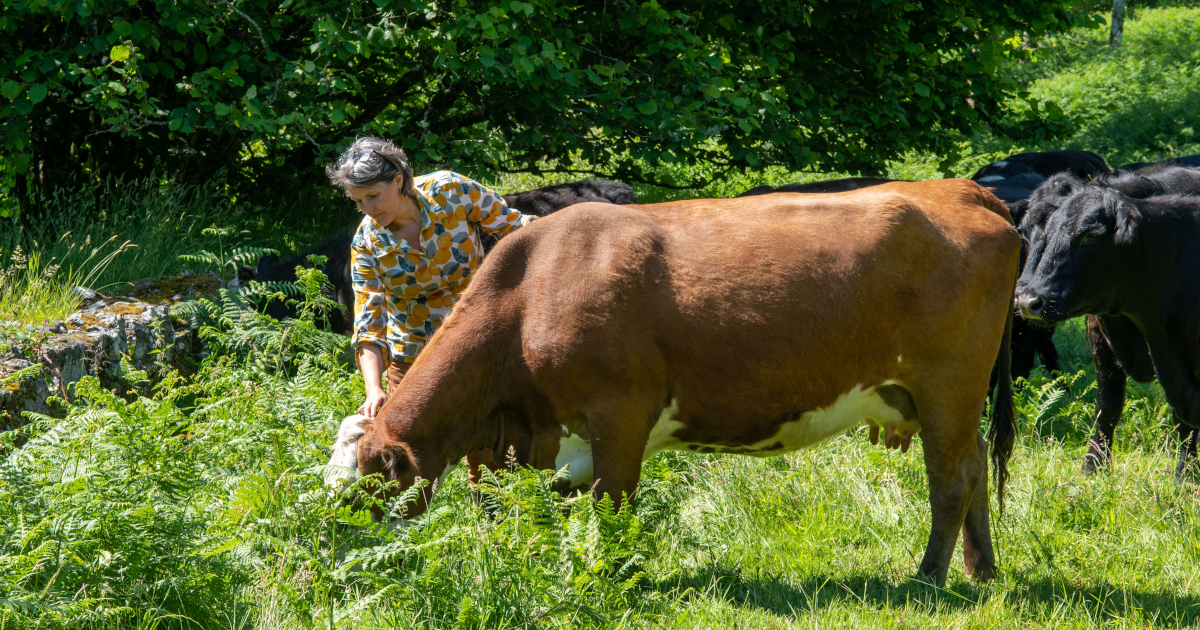
Why buy Farm Wilder produce?
Creating a way for you to purchase our extraordinary meat is a small but vital step forwards - it means you can directly support farmers that are working to deliver the change we need. That’s why we’ve partnered with Andy Gray, of Elston Farm and MC Kelly butchers, allowing us to use his master butchers and online sales platform to deliver our meat right to your door.



